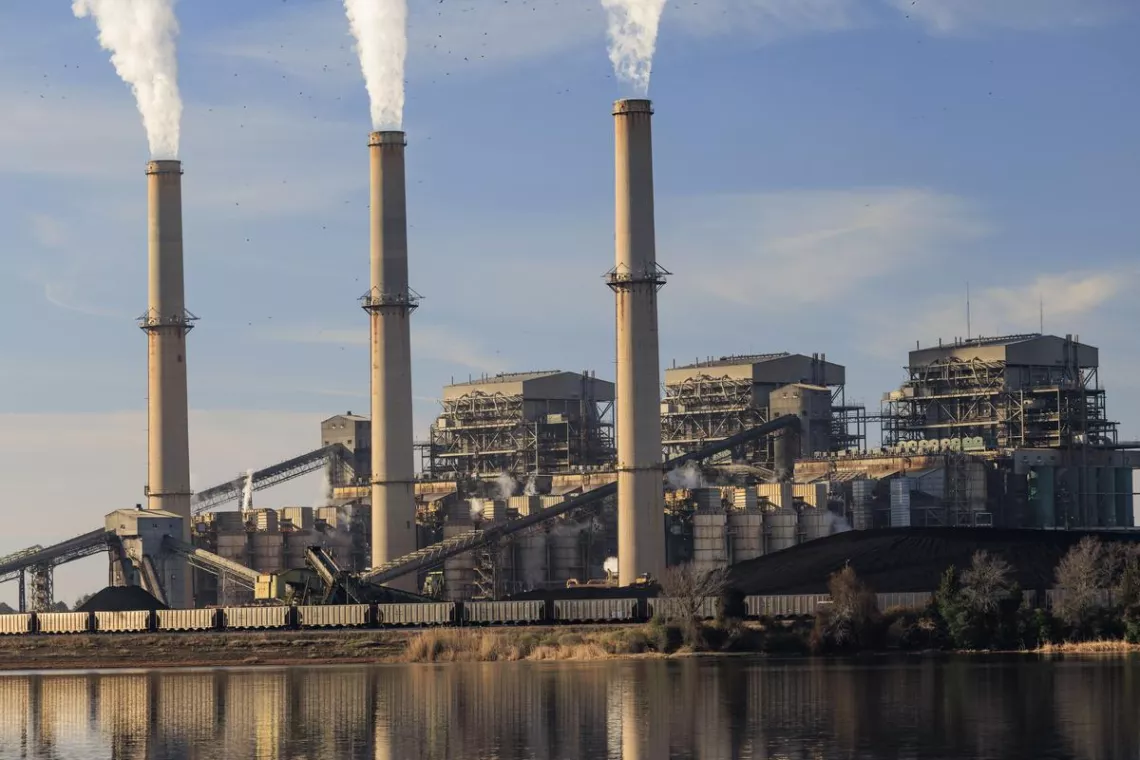It turns out, elections have real environmental consequences. When President Biden took office in January, 2021, one of the Sierra Club’s top goals—shared by many other environmental organizations—was to push for new EPA rules requiring all oil and gas wells and related infrastructure to cut methane emissions. Methane, the primary component of natural gas, is a powerful driver of climate change.

What is methane?
Methane is an invisible, odorless, organic compound comprised of a single carbon atom surrounded by four hydrogen atoms (CH4), and is one of a family of compounds called hydrocarbons. It is found widely in nature, and is the main component of so-called “natural gas”. Methane is also produced through digestive processes (agricultural feedlots, for example), as well as when bacteria decompose natural materials (landfills, for example), releasing the compound into the air. In fact, methane, which is odorless, has some 86 times the impact on our climate than even carbon dioxide measured over a 20-year time period.
Where does methane come from?
Oil and gas production is one of the largest sources of methane in our atmosphere. Leaks, outdated equipment, faulty valves, accidents, and illegal venting all release massive amounts of methane. Cutting these emissions would significantly reduce climate risks and improve public health by limiting “volatile organic compounds” and other air pollutants. Fortunately, the Biden Administration followed through, and in December 2023, the EPA finalized methane rules—a victory for the Sierra Club and allies. Texas, the nation’s top oil and gas producer, emitted over 564 billion cubic feet of methane in 2019. Recent satellite data shows that Texas’s Permian Basin emits twice the methane of New Mexico’s regulated industry. Unfortunately, neither the Texas Railroad Commission nor the Texas Commission on Environmental Quality has implemented regulations to curb emissions, making these federal rules especially impactful in Texas, where local organizations are celebrating with cautious optimism. Our December press release has more details.
Texas pushback on methane regulations
Well, this may or may not surprise you, but the two state agencies that have a role in implementing the new methane requirements on industry - the Railroad Commission and the Texas Commission on Environmental Quality - responded to the proposed rules initially by asking our Attorney General Ken Paxton to freeze implementation of the rules and ultimately overturn them. Rather than seeing the new rules as an opportunity to help Texas be a leader on reducing pollution, our state leadership sought to fight new regulations. You can read more about Attorney General Paxton’s efforts here. Fortunately, even the conservative U.S. Supreme Court did not agree and on October 4, 2024, the Supreme Court upheld the rule, allowing it to move forward.
Under the EPA’s new rules, Texas is required to create a Methane State Action Plan with enforceable industry standards. However, Texas has until March 2026 to finalize its plan, allowing several years for development, implementation, and enforcement. The plan must include minimum regulations that industry would need to comply with, but it can also allow for exceptions and even incentives. For example, Texas’s Emissions Reduction Plan already provides funding for technologies that reduce methane emissions and limit flaring. A balanced approach that combines requirements and incentives could effectively help Texas cut methane emissions.
What is TCEQ doing to regulate methane emissions?
Well… not much. But they have started a process. While there isn’t an actual rule to comment on, they are asking Texans what they should do next.. For example, the EPA has developed a model rule targeting existing oil and gas facilities, and TCEQ could adopt this rule to help meet some of the new requirements. TCEQ is holding three informal stakeholder meetings in November in Austin, Arlington, and Midland. Only the Austin meeting will have a virtual component. Sierra Club plans to have representatives at all three meetings, and we need YOU to help us.
What you can do to support methane regulations
Texans have a chance to weigh in on how TCEQ should approach regulating methane emissions. While there isn’t a formal rule yet, TCEQ is asking for public input on the steps it should take. This is a critical opportunity to push for meaningful action, like adopting the EPA's model rule for existing oil and gas facilities. TCEQ will hold three informal stakeholder meetings in November in Austin, Arlington, and Midland, with only Austin offering a virtual option. The Sierra Club will have representatives at each meeting—and we need your support to advocate for strong methane regulations! For guidelines on submitting comments, please refer to this PDF Commenting Guide for commenting instructions.